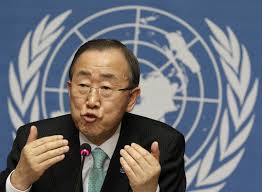Origins
The United Nations developed as a post-war international organisation to maintain peace and security. The UN can be seen as an evolution or response to the failure of the League of Nations to adequately respond to the situations which paved the way for World War 2.
However prior to the formation of the League of Nations and UN, many other factors played a role in inspiring and evolving the process and progress of international organisation. Including:
– the growth of law and a legalist approach to international cooperation
– ideas of universal human rights which developed out of the US War of Independence and the French Revolution. The liberal values which were projected through these events heavily influenced the rights set out in the UN Charter
– International social movements focused on human rights including; the Anti-slavery campaign
– New faith in human capacity to organise and manage
Role/aims
To put it simply:
UN’s main aims are to “keep peace, develop relations, improve lives of poor people, and to be a centre for harmonising”.
Structure
The General Assembly – Here, all 193 member states have a representative. All other bodies are appointed and elected by the G.A., as well as it having a crucial role in policy making. However, decisions made within the G.A. are binding (i.e. not enforceable by international law).
The Security Council – The Security Council is made up of five permanent members (the P5: US, UK, Russia, China and France), and ten non-permanent members that are elected for two year terms. The S.C. is the main enforcement mechanism of the UN. It’s main goal is to maintain global peace and security.
Secretary-General – Appointed by the G.A., upon recommendation by the S.C. Currently Ban-Ki Moon. Their role is peacekeeping and humanitarian.
International Court of Justice – A centre for all legal disputes and advisory opinions in regards to UN matters.
Economic and Social Council (ECOSOC) – Has 54 members, and is the organ for all economic and social concerns, as well as accommodating NGOs.
